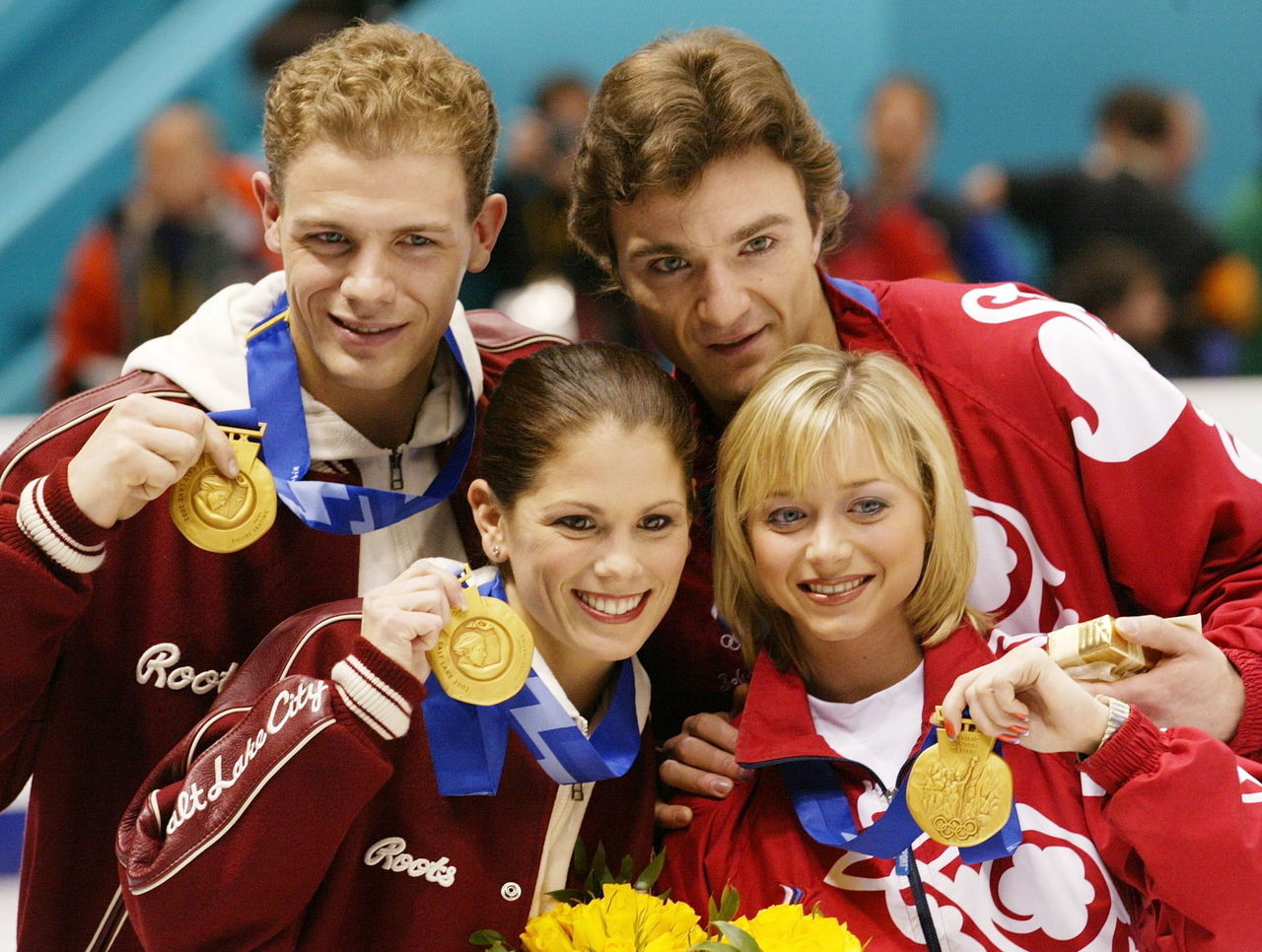How a Canadian ice dancing pair changed figure skating forever
As allegations swirl of a vote-swapping deal between U.S. and Russian figure skating judges aimed at denying Canadian ice dancers Tessa Virtue and Scott Moir a second consecutive Olympic title, it's impossible not to recall the most famous judging controversy in figure skating history: the pairs competition at the 2002 Winter Games in Salt Lake City.
"How did that happen?"
Canadian pairs figure skaters Jamie Salé and David Pelletier entered the 2002 Games with the chance to become the first Canadians to win Olympic gold in the sport since 1960. They emerged with silver medals around their necks and at the center of the biggest scandal ever to hit their sport.
Salé and Pelletier were narrowly edged for the gold medal by the Russian pair of Elena Berezhnaya and Anton Sikharulidze, despite the Canadians skating a nearly flawless long program and the Russians making a very visible error.
During the live broadcast of the event, Canadian and American announcers proclaimed Salé and Pelletier the obvious victors in the moments before their scores were revealed. In the aftermath of the unexpected result being made official, NBC commentator Scott Hamilton was at a loss to explain what he witnessed.
"How did that happen? They won that program," Hamilton insisted. "There's not a doubt in anyone in the place except for maybe a few judges. That will be debated forever."
The aftermath
The immediate reaction in the North American press to the pairs results was outrage. Host broadcaster NBC played a key role in advancing the story, focusing much of its ensuing Olympic coverage on the controversy and advocating for the Canadian pair.
Recognizing the intense pressure it faced, the International Skating Union was quick to announce it would conduct an internal assessment of the results.
In short order, it was revealed French judge Marie-Reine Le Gougne conspired to award the Russian pair gold in exchange for French skaters Marina Anissina and Gwendal Peizerat receiving favorable scores in the ice dancing competition. Le Gougne was immediately suspended by the ISU.
At least one witness claimed a teary Le Gougne confessed to a deal with Russian judges the night of the pairs long program, but no punishment was ever dealt to any Russians as a result of the controversy.
In an unprecedented decision (and one that was not covered by any of the ISU's bylaws), Salé and Pelletier were awarded gold in the event. Berezhnaya and Sikharulidze were allowed to keep their gold. No evidence has ever emerged suggesting the Russian skaters were involved in cheating.
For the first time in Olympic history, a second medal ceremony was held.

Long-term ramifications
In response the controversy, the ISU created an entirely new system of figure skating judging, throwing out the old 6.0 system.
The complex new system is designed to make scoring more objective and eliminate the potential for abuse, and it has been largely effective for the most part.
Perhaps the most controversial aspect of the new system is that it doesn't tie scores to judges. The ISU insists anonymity frees judges from pressure to assign predetermined scores to routines; critics argue it doesn't dissuade cheating and instead makes it much harder to identify culprits.
Where are they today?
Salé and Pelletier made the leap from pair on the ice to legally married pair in 2005, but the relationship was short-lived. In 2010, the couple announced the decision to divorce.
Since the split, Salé participated as a competitor and judge on the CBC reality show "Battle of the Blades" and married her partner on the show, retired NHL player Craig Simpson.
Salé and Pelletier remain a pair on the professional figure skating circuit.
Le Gougne wrote a book about her experiences, Glissades à Salt Lake City, in which she asserts the belief that Berezhnaya and Sikharulidze deserved higher scores than Salé and Pelletier based on the technical difficulty of their performance.